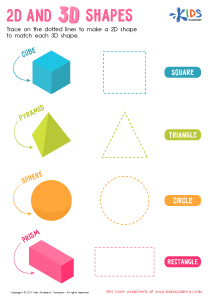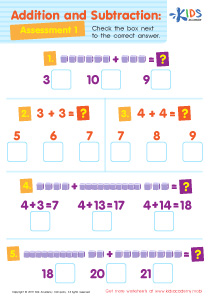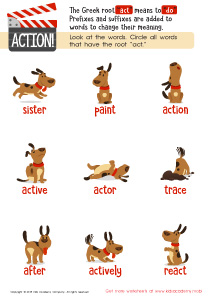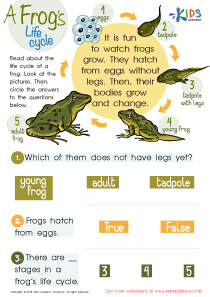80 results
Dive into the wonders of the universe with our Science for Ages 8-9 program! Crafted specifically for young learners, this dynamic course combines interactive worksheets, captivating educational videos, and engaging assessment quizzes to ignite curiosity and solidify understanding. Explore a range of topics from the mysteries of outer space to the marvels of the human body, each designed to stimulate and challenge inquisitive minds. With our Science for Ages 8-9 course, children will not only learn foundational scientific concepts but also develop critical thinking skills, all while having fun! Join us for an adventure in learning where every lesson is an exciting discovery.
Science for Ages 8-9: Unlocking the Wonders of the World
In the formative years of childhood, ages 8-9 represent a pivotal time for instilling a love and understanding of science. It is during these years that children begin to explore the world around them with a more analytical eye, asking questions about how things work, why they happen, and what makes up the universe. Our Science for Ages 8-9 curriculum is designed to nurture this innate curiosity, providing children with the tools they need to embark on a lifelong journey of discovery.
Our program stands out because it does more than just present facts; it engages young minds in a dynamic learning process. We employ a combination of interactive worksheets, educational videos, and assessment quizzes, all tailored to the cognitive and developmental stages of children in this age group. This multi-faceted approach ensures that each child can learn in a way that best suits their individual learning style.
The interactive worksheets serve as the cornerstone of our curriculum. These aren't your typical fill-in-the-blank sheets. Each worksheet is designed to be a hands-on exploration into topics such as the life cycles of plants and animals, the states of matter, the basics of astronomy, and the principles of electricity and magnetism. By directly engaging with the material, children not only absorb information more effectively but are also able to retain it longer, making these lessons invaluable to their studies.
But learning doesn't stop at the worksheets. Our educational videos bring science to life, offering visual and auditory learners the chance to see scientific concepts in action. These videos often feature experiments, demonstrations, and explanations that enhance the material covered in the worksheets, providing a well-rounded understanding of each topic.
Lastly, assessment quizzes serve a crucial role in reinforcing learning and measuring progress. These quizzes are crafted to be both challenging and fun, encouraging children to apply what they've learned in practical scenarios. Through these assessments, children can see for themselves how much they've grown and what areas they might need to focus on, promoting a growth mindset that's essential for academic success.
But why is our Science for Ages 8-9 curriculum so beneficial for children's studies? The answer lies in its ability to foster critical thinking, problem-solving skills, and a deep-seated love for learning. By presenting scientific concepts in an engaging and accessible manner, we not only help children understand the world around them but also equip them with the tools to ask more profound questions, seek out answers, and apply their knowledge in real-world situations.
Furthermore, the skills and knowledge gained from our lessons go beyond the classroom. Understanding science and its applications can help children make informed decisions, understand news and information critically, and even inspire future career paths in science, technology, engineering, and mathematics (STEM) fields.
Our Science for Ages 8-9 curriculum isn't just about teaching children facts; it's about opening their eyes to the wonders of the universe and laying the groundwork for a lifetime of discovery. By nurturing their natural curiosity and providing a solid foundation in scientific principles, we're helping to cultivate the next generation of thinkers, innovators, and leaders.















